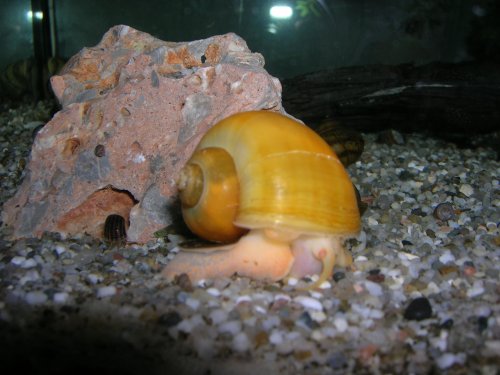The Taiwan Centers for Disease Control (Taiwan CDC) announced today five confirmed cases of angiostrongyliasis, or rat lungworm, in foreign workers from Thailand.
All five cases have consumed raw or undercooked apple snails and they are all currently hospitalized for treatment. They have been provided with specific medication.

According to the epidemiological investigation, 9 Thai workers who work in a factory in southern Taiwan consumed undercooked and even raw apple snails collected around the factory on February 26. Among the workers, 6 developed severe symptoms, including fever, headache and stiffness and they respectively sought medical attention on March 4 and 5.
The physician suspected angiostrongyliasis in the cases after finding out they had consumed raw apple snails and reported them to the local health authority. Five cases were confirmed to have contracted angiostrongyliasis. As of now, all 6 cases have been administered with the medication and hospitalized for treatment.
Angiostrongyliasis, also known as rat lungworm, is a disease that affects the brain and spinal cord. It is caused by a parasitic nematode (roundworm parasite) called Angiostrongylus cantonensis.
The adult form of A. cantonensis is only found in rodents. However, infected rodents can pass larvae of the worm in their feces. Snails, slugs, and certain other animals (including freshwater shrimp, land crabs, and frogs) can become infected by ingesting this larvae; these are considered intermediate hosts. Humans can become infected with A. cantonensis if they eat (intentionally or otherwise) a raw or undercooked infected intermediate host, thereby ingesting the parasite.
Sometimes people can become infected by eating raw produce that contains a small infected snail or slug, or part of one. It is not known for certain whether the slime left by infected snails and slugs are able to cause infection. Angiostrongyliasis is not spread person-to-person.
PAIN FREE CYCLING! NO MORE ACHES & PAINS! LEARN MORE
Symptoms of angiostrongyliasis may include severe headache, stiffness of the neck and back, skin tingling, pain and sensitivity, sensitivity to light, hallucinations, nausea, vomiting and sometimes coma and death.
Taiwan CDC urges public to avoid eating raw foods, wash vegetables, fruits and hands thoroughly prior to eating, and snails must be thoroughly cooked prior to consumption.
Related:


